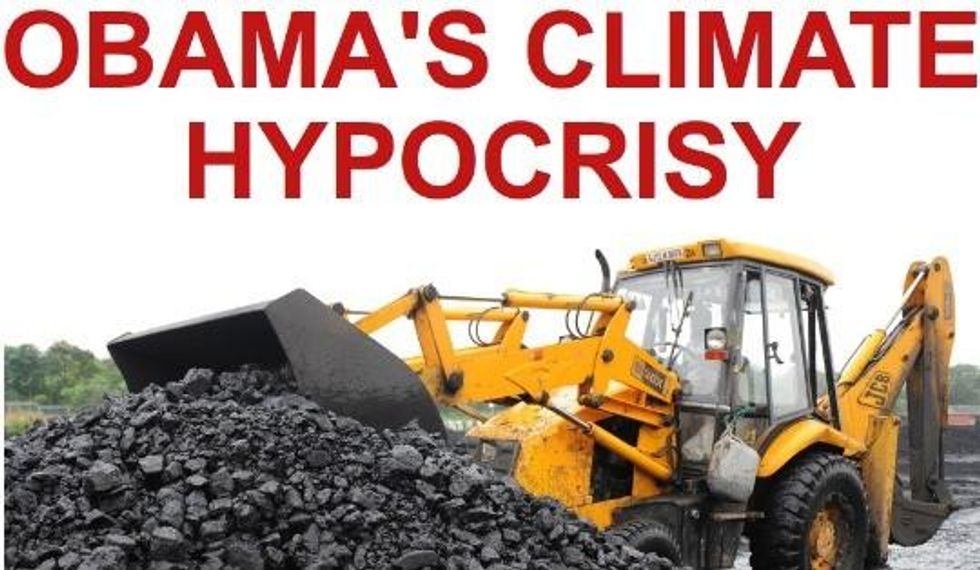Though many championed President Obama's national address on climate change and energy policy last month at Georgetown University, more cautious voices argued that speeches were one thing, but actions would ultimately prove the president's level of commitment to combating the problem of human-caused global warming.
Now, more than a month later, the voices of concern are again coming to the fore, with the top headline on the Huffington Post's environment page declaring that development of US coal export infrastructure is a sign of "Obama's Climate Hypocrisy" and celebrity eco-warrior Robert Redford saying that the possible approval of the Keystone XL pipeline by the president would "flat out fail" his own "common-sense test" regarding climate impacts.
As HuffPo's Lynne Peeples reports in her piece:
Environmental experts who remain unimpressed with President Barack Obama's war-on-carbon rhetoric point to one key reason for concern that's off most Americans' radar: U.S. coal exports.
A push to expand coal mining operations in the Powder River Basin of Montana and Wyoming, and to build three ports in Oregon and Washington to ship the fuel to Asia, could create more national and global environmental impact than a Canadian company's proposal to ferry Albertan tar sands to the U.S. Gulf Coast via the Keystone XL pipeline. Yet these remote projects are not getting the attention they deserve, critics suggest, and they fear Obama may be overlooking, apathetic to, or even supportive of them.
But, it's not a choice between approving new coal projects or allowing tar sands expansion, says critics. Obama must put an end to both.
As Friends of the Earth climate and energy program director Damon Moglen has said, "In order to address climate change, the president needs to focus on the ambitious development of renewable energy, energy storage and efficiency technologies while setting us on a path which clearly leaves behind the fossil fuel-based energy economy of the 20th century."
Earlier this week, NRDC released a study showing that if the president approves Keystone XL it would be a direct and endlessly destructive decision and a complete affront to the rhetoric of his Georgetown speech.
"Our analysis clearly demonstrates that the Keystone XL pipeline would dramatically boost the development of dirty tar sands oil, significantly exacerbating the problem of climate pollution," Susan Casey-Lefkowitz, director of NRDC's international program, said in a statement.
But don't take NRDC's word for it, argues Redford in his op-ed on Thursday:
Ever heard of Goldman Sachs? Standard & Poor's? They're just a couple of the bedrock sources of economic analysis that are already saying that, without the Keystone XL, much of the tar sands expansion just won't happen.
Big oil companies want that pipeline so they can ship tar sands crude across the American heartland to Gulf Coast refineries and, from there, to lucrative markets overseas.
The Canadians don't want tar sands shipped across their waterways, ranches, communities and farms. Well, neither do we.
Rail is not a viable option. It's too expensive for tar sands.
RBC Capital Markets may have said it best: "Should Keystone XL be rejected, Canadian oil sands producers will need to rethink expansion plans, timelines and export pipe solutions."
If you've never read an investment analysis before, that's shorthand for "Forget about it."
And as far as export coal terminals, specifically a trio planned for the Pacific northwest, Eric de Place, policy director for the Seattle-based Sightline Institute, told Huffpost's Peeples that the damage caused by increased coal activity in the US would be equal to or greater than that posed by tar sands.
"We can do small-caliber meaningful things to reduce climate emissions. But if [the United States becomes] a carbon-export hub, that doesn't mean anything," he said.
____________________________________________________________




